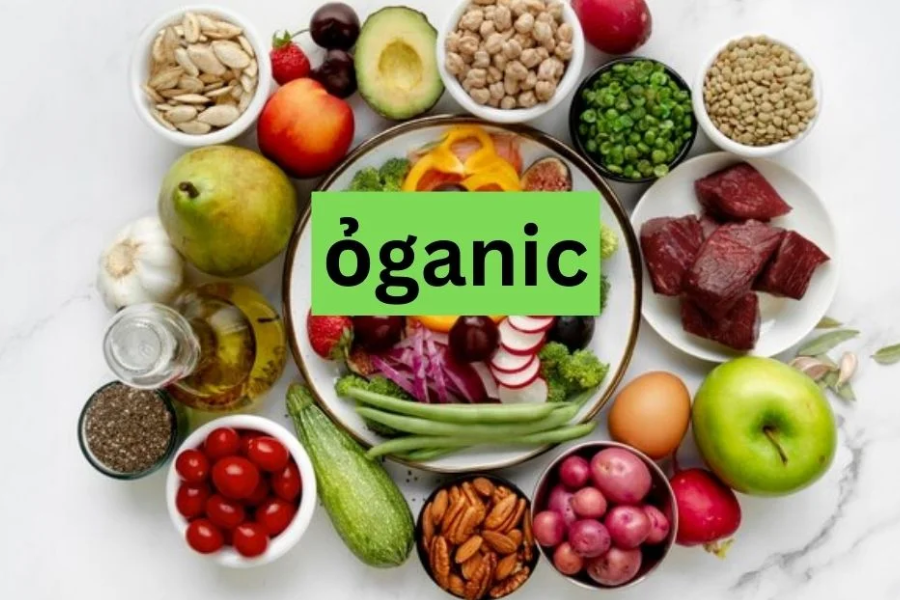Introduction
“Normal” is a word that has attacked our ordinary jargon, decorating everything from the apples we purchase at the supermarket to the cotton shirts we wear. In any case, what unequivocally does “normal” mean? This broad assistant examines the significant pieces of regular living, from definitions and practices to the advantages and examinations included.
Decoding Organic: Understanding the Core Principles
With regards to food and agribusiness, the expression “natural” alludes to creation methods that bar manufactured inputs. Here is a breakdown of key natural standards:
No Synthetic Pesticides or Herbicides
Natural cultivating restricts the utilization of man-made synthetics to control nuisances and weeds. All things considered, it depends on regular techniques like harvest revolution, helpful bugs, and natural vermin control arrangements.
No Genetically Modified Organisms (GMOs)
Natural creation evades hereditarily designed harvests and creatures, underscoring customary rearing techniques and normal development processes.
Focus on Soil Health
Natural practices plan to sustain the dirt, cultivating a solid biological system overflowing with valuable organisms. Methods like treating the soil and cover trimming assume a critical part in keeping up with soil wellbeing.
Animal Welfare
Natural domesticated animals cultivating stresses the prosperity of creatures. Creatures approach the outside, are not given routine anti-toxins or development chemicals, and are taken care of natural feed.
Sustainable Practices
Practices that reduce environmental impact, preserve water resources, and enhance biodiversity are encouraged by organic farming. This all-encompassing strategy guarantees long-term viability.
Unveiling the Benefits of Organic: Why Choose Organic?
Numerous consumers select organic products for a range of reasons, from environmental concerns to health advantages:
Potential Health Benefits
While studies are as yet being led, some show that natural food might have lower pesticide buildup levels and higher centralizations of explicit cancer prevention agents. Food that is natural is commonly fresher since it doesn’t contain additives to expand its timeframe of realistic usability.
Environmental Advantages
Expanded biodiversity, cleaner soil, and less compound contamination of water are advantages of natural cultivating rehearses. By shunning counterfeit manures and pesticides, natural cultivating brings down contamination and jelly water quality.
Animal Welfare
Better living conditions for animals are promoted by organic standards, which appeals to customers who respect ethical treatment. Animals are free to roam around and behave in ways that are typical of them.
Taste and Quality
Many consumers find organic food to have superior taste and freshness, possibly due to the focus on natural ripening and traditional farming methods. The lack of chemical residues also contributes to a cleaner, more natural taste.
It’s memorable’s vital that natural doesn’t be guaranteed to compare to “more nutritious.” Many elements can impact the nourishing substance of food, including assortment, developing circumstances, and capacity.
Organic Farming Practices: A Glimpse into the Fields
Organic farmers employ a range of techniques to cultivate healthy crops and raise healthy animals:
Crop Rotation
Sequential crop planting contributes to soil nitrogen replenishment and breaks insect life cycles. By using this technique, fewer chemical pesticides and fertilizers are required.
Cover Cropping
Planting cover crops between seasons protects the soil from erosion, adds organic matter, and attracts beneficial insects. Cover crops like clover and vetch improve soil health and fertility.
Composting
Compost that is rich in nutrients and feeds the soil is produced by breaking down yard trash and food scraps. In addition to recycling organic materials, composting improves the fertility and soil structure.
Biological Pest Control
This approach utilizes regular hunters and valuable bugs to control bother populaces. Ladybugs, for instance, are acquainted with feed on aphids.
Manure Management
Treating the soil the excrement of creatures kept naturally yields a characteristic compost. By doing this, the dirt is recharged with supplements and the requirement for fake manures is diminished.
Organic Feed for Livestock
Natural creatures are taken care of natural feed, liberated from manufactured pesticides and manures. This guarantees that no unsafe synthetic compounds enter the well established pecking order.
In spite of its advantages, natural cultivating can be more work serious than customary strategies and may yield lower crop yields at first. Furthermore, natural items frequently accompany a greater cost tag because of the more serious cultivating practices and confirmation processes included.
A Look Beyond Food: Organic Spreads Its Wings
The concept of “organic” extends beyond the realm of food and agriculture. Here are some additional areas where organic principles are applied:
Organic Textiles
For instance, natural cotton is created without the utilization of counterfeit composts and pesticides, making it an additional harmless to the ecosystem and perhaps less allergenic decision. Garments, towels, and beds fabricated from naturally developed filaments are instances of natural materials.
Organic Cleaning Products
Because they are made with natural materials, organic cleaning products are frequently better for the environment and people’s health. They lessen indoor air pollution by staying away from harsh chemicals and synthetic perfumes.
Organic Personal Care Products
By avoiding harsh chemicals and synthetic substances, organic cosmetics and personal care products may lessen skin irritation. They make use of organic components like plant extracts and essential oils.
Remember, organic claims can vary by industry. Look for certifications from reputable organizations to ensure a product truly adheres to organic standards.
Understanding Organic Certification: A Mark of Trust
A formal procedure called “organic certification” confirms that goods adhere to predetermined organic standards. Independent certifying bodies conduct inspections as part of this procedure. To be sure a product is really organic, look for labels like the European Union Organic mark or USDA Certified Organic (in the United States).
FAQs
Is organic food always healthier?
The health benefits of eating organic food are still being studied, despite several studies’ indications of possible advantages. Food cultivated commercially or organically can both be included in a balanced diet.
Are organic products worth the price premium?
The decision is personal. Consider your budget, priorities, and the specific product. Organic products often come with a higher price tag due to the more intensive farming practices and certification processes involved.
Conclusion
Organic living encompasses a wide range of advantages, from freedom from genetically modified organisms that may have adverse health effects and denying inhumane treatments to animals, to more environmentally friendly techniques in cultivation. While there are challenges associated with organic practices, they represent positive endeavors aimed at providing humanity and posterity with a healthier, more sustainable future.
Ultimately, the choice to select organic is an individual one. By learning about these principles, practices, and considerations, you can make informed decisions based on your values and preferences. Whether you decide to choose organic options for all your products or make the transition in smaller, more manageable ways, every move towards a cleaner, greener tomorrow is a step that will benefit both you and the planet.



